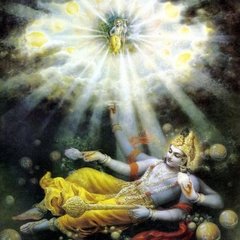Search the Community
Showing results for tags 'Self-inquiry'.
Found 5 results
-
Key pointers for meditation extracted from this series of Q&A's. https://realization.org/p/annamalai-swami/annamalai.talks.html The simplicity of how the Swami expresses the nature of this practice is gold. And for my brethren of a more Buddhist persuasion, that particular YouTube channel is a veritable gold mine. Jewels upon jewels, diamonds in the rough.
- 17 replies
-
- 1
-

-
- direct pointers
- self-inquiry
-
(and 6 more)
Tagged with:
-

Enlightenment is discernment driven all the way to the end
blackfence posted a topic in General Discussion
Spiritual awakening or liberation is essentially a matter of immense, intense discernment -- an act of focused distinguishing away of all the things one is not, which then reveals what one really is, though that revelation is not to the one who originally sought it. That's the paradox of seeking: you seek as you know that you are what you seek. The intense discernment required for the search is driven by equally intense desire for liberation, which generates, through practice, a relatively quiet mind, and focus... which must be then be channeled all the way through, via surrender or self-inquiry -- to discerning away ALL the things that you are not. There is an end to the process, but it is not what you think it is. -

Chasing reflectivity: seek to notice the 'mirror' quality of each moment
blackfence posted a topic in General Discussion
Reflectivity is a central concept for the seeker... each moment has a kind of unchangeable quality which isn't about its content, but is a reflection of the experiencer, of the Self. The seeker needs to chase that reflectivity, which is nothing but being, awareness, bliss and, the I. The chase for reflectivity can never result in catching it, but it can result in a restructuring of the mind that destroys the ignorant belief that "I am an experiencing, doing person" that conceals the *true* reflectivity. -
We were conceived, developed from a zygote into a baby in our mother's womb, and after nine months we entered this world, crying and screaming. Then we grew older, progressively, our bodies and minds changed. We say the bodies "aged" and the minds "matured". There is however one thing that didn't change. The feeling of "I". When we identify ourselves, we say "I am so and so" and then further "I am son or daughter of so and so" and then further more, "I live in such and such a place and belong to this or that group". Further we say "I am a doctor, an engineer, a teacher, and so on". It seems that our identity is hinged something other than our own self. We look at our body and say "This is my body". Our mind formulates thoughts and our body acts accordingly. But when we break all of that down, cut away all the material trappings of country, language, profession, property, religion, etc; it is "my mind, my body" that we come down to. Yet, we don't say "me mind, me body". The mind and the body belongs to me. Who is that me? The answer comes back - "I am". So tell me, you, this complex being of bones, flesh, blood and gray matter, grew from a zygote into what you are today (young person, middle-aged person, old person). Yet your "I" sense has remained unchanged, when you strip away all the "I am this, I am that" kind of thinking. All the cells in your body, even the cells in your brain, where you think your "consciousness" exists have died and rebuilt themselves entirely, over and over again. Yet you, the "I am", remains unchanged. How then can you say, that your consciousness is a function of your body, made of matter. Matter that is impermanent and ever changing... So ask yourselves this, my friends - "Who am I?" and listen for the answer.



